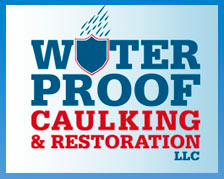Power washing and pressure washing are appealing jobs for potential DIYers who want to spruce up their home and outdoor space without committing to a large expenditure. However, power washing is not as simple as pointing a nozzle at a dirty spot and letting the water blast the debris away.
In fact, approaching the project in this way could do much more harm than good, resulting in permanent damage to your surfaces if you are not familiar with what should (and should not) be power washed. Before you begin, be sure that you understand the different surfaces that are commonly found around homes and whether they are suitable for this project.
Why Power Washing Is A Useful Tool
Power washing does more for your property than just making it appear newer and refreshed (though this is a helpful benefit). In fact, using a power washer can keep your surfaces more resilient against degradation over time by removing many contributing factors of decay. If you blast away mold, rotten leaves, algae and even pests like spiders and their webs, you can prevent these things from further encroaching upon your surfaces and doing them harm or breaking them down over the years. So remember that power washing can help you to accomplish more than just beautifying your space—though that is a worthwhile reason to tackle this project in and of itself.
Surfaces That Are Conducive To Power Washing
Some surfaces hold up well to power washing because of their composition. Very sturdy materials such as brick, stone, gutters and even roof shingles are suited to withstand the heavy pressure introduced by power washing and so are good places to begin. You can even power wash your home’s siding.
However, even with materials that are resilient against the high pressure of the washer’s water jet, remember that using a washer requires some technique and skill in order to avoid damaging your surfaces. This is why many people leave this project to the pros. If you want to tackle it yourself, consider the psi of your power washer and adjust how far you stand and how quickly you make sweeps over the surface.
Surfaces That Should Not Be Power Washed
Not all surfaces—even the dirty ones—are cut out to be power washed. Before you use your power washer on all of your surfaces, be sure that you understand what they are made of in order to prevent doing damage. Laminar sandstone is too soft to power wash, which means that if you make this mistake, you could leave permanent marks or grooves carved into the material. Painted surfaces could see their paint chipped or faded, and stained wood can have its stain stripped directly off. Sometimes this is your ideal outcome, but for many, this comes as an unpleasant surprise.
Approach wood carefully in general; if it is soft, you can damage it, and if it is older and has begun to dry rot, you may carve entire pieces out with the power of a washer. Asphalt roofing is also not suitable for power washing, because the granules on the surface easily catch and inhibit the water, which can tear and grind them off. This directly destroys your roofing material, but you may not notice right away on the assumption that the murky water flowing from your roof is dirt (it is not).
Consider The Effect Of Your Detergent
As you evaluate whether you should power wash a certain surface, do not forget to think about how the detergent used with a power washer may impact a surface too. Some stains and colorations do not respond well to certain types of detergent, and washing these surfaces could result in fading or splotchy stains. An expert can help you to understand which options are right for you and how to avoid some of these common issues. You do not need to approach a power washing job on your own if you do not feel confident in the technique or materials needed to do it right.
Trust The Experts To Get The Job Done Right
Whether you are considering whether power washing is what your surfaces need or you are ready to tackle the project but are not sure where to start, do not be afraid to reach out to the professionals. The experts at Waterproof Caulking & Restoration would be happy to take on this job for you so that you can dedicate your energy to the projects that you care about. Reach out to learn more about how we can help or to schedule an appointment to discuss your goals.
